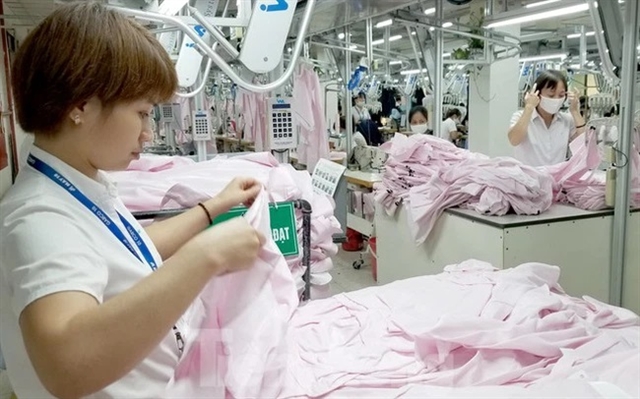[ad_1]

HÀ NỘI —The Vietnam General Confederation of Labour has proposed a 7 per cent increase in minimum wages from July 1, but many insiders gave a thumbs down to the proposal.
Bạch Thăng Long, deputy general director of Garment 10 Corp., underlined that the resurgence of the pandemic in Q1 had a negative impact on firms’ financial situation.
Higher payroll costs would add to their woes, putting a strain on small-sized firms.
He suggested the increase in minimum wages be put off until 2023 and cover only inflation to leave room for firms to recover.
“Minimum wages should increase only to offset the rise in inflation. Economic growth and living standard should be factored in next time,” he said.
Huỳnh Thị Hồng Cúc, union chairwoman of Nhà Bè Garment Corp., said the wage increase would apply to only those workers that have been paid under the minimum level.
However, a pay rise to only a specific group would make other workers unhappy, forcing her firm to raise wages across the board.
Accordingly, she estimated that her firm’s labour costs would increase by 10 per cent should minimum wages rise by 5 per cent, adding hundreds of billions of đồng to its wage bills.
“Our firm has over 15,000 workers on payroll with eight wage levels. Workers of level 1 alone incurred an additional cost of up to VNĐ11.5 billion (US$503,000) during the wage rise in 2020,” she added.
Lê Nhật Trường, union chairman of Pou Sung Vietnam LTD., revealed that his firm faced the same situation.
He said it was not compulsory to raise wages for those workers who had been paid above the minimum level.
However, not paying more during a wage rise would cause dismay for the workers, resulting in dissatisfaction.
“Accordingly, over 22,000 workers of ours received higher wages during the wage rise in 2020 although none had been paid under the minimum level,” he said.
The union chairman was concerned that the proposed 7 per cent increase in minimum wages this year would add about VNĐ180 billion to his firm’s financial burden.
Trương Tiến Dũng, vice chairman of the HCM City’s Food and Foodstuff Association, believed that the rise in wage bills would be passed on to product prices, fuelling inflation.
Firms that refuse to price up their products would have no choice but to shed staff to cut costs.
Hoàng Văn Phòng, vice chairman of the Vietnam Chamber of Commerce and Industry, believed that an increase in minimum wages was needed after two years without an adjustment.
However, the incremental pay scale needed further discussion to assess its impact on firms’ financial situation.
He also said that it was unreasonable to raise minimum wages around mid-year since firms calculate their costs based on fixed wages at the beginning of the year.
Accordingly, the wage increase was recommended to move to another date.
The National Wages Council is expected to hold another meeting on April 12 to further discuss the proposal. — VNS
[ad_2]
Source link
